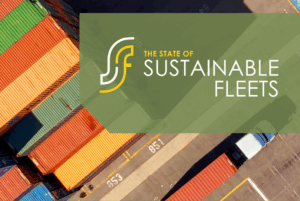 Now in its sixth year, the State of Sustainable Fleets: 2025 Market Brief provides a comprehensive, technology-neutral assessment of trends shaping the clean commercial transportation sector. The 2025 report documents continued growth in the adoption of clean vehicle technologies nationwide, even as policy shifts and market uncertainty increase.
Now in its sixth year, the State of Sustainable Fleets: 2025 Market Brief provides a comprehensive, technology-neutral assessment of trends shaping the clean commercial transportation sector. The 2025 report documents continued growth in the adoption of clean vehicle technologies nationwide, even as policy shifts and market uncertainty increase.
- Policy and Funding: Federal priorities have shifted toward conventional fuels, creating uncertainty in support for zero-emission vehicles (ZEVs). Meanwhile, several states are continuing to lead with policies and funding mechanisms.
- Diesel and Renewable Diesel: Supply and adoption of renewable diesel (RD) are on the rise, offering emissions benefits and operational efficiencies to fleets still reliant on diesel technology.
- Natural Gas Vehicles (NGVs): Sales remain steady with the emergence of 15-liter engines, although low CNG prices have faced challenges due to narrowing cost savings and tax policy questions.
- Battery-Electric Vehicles (BEVs): Despite reduced federal support, BEV sales continue to grow, supported by new infrastructure innovations and fleet-reported benefits such as quieter operations and reduced fuel costs.
- Hydrogen Fuel Cell Vehicles: While federal R&D support is in flux, sales of hydrogen-powered tractors and buses have increased, and new modular fueling infrastructure is emerging to support market growth.
The report concludes that the industry is in a period of “peak complexity.” Market participants are navigating a dynamic regulatory environment, evolving fuel infrastructure, and the need to match technologies to specific applications. Still, the broader trend points toward clean technologies becoming more embedded in fleet operations across the country.


